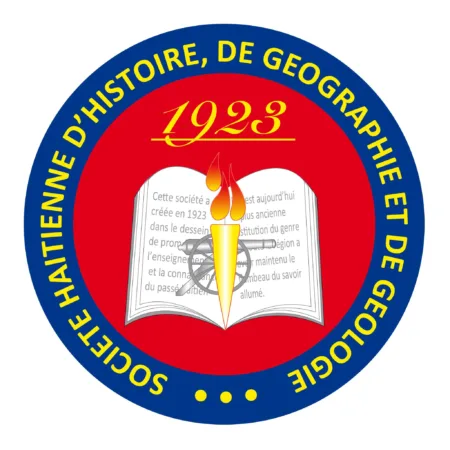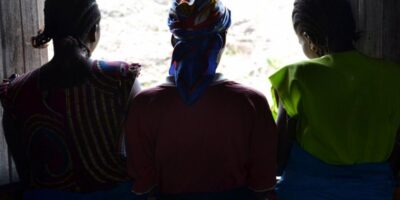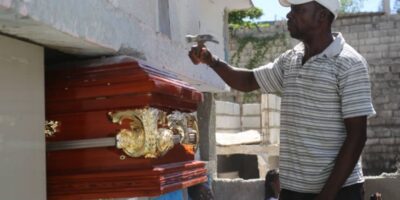Established on December 8, 1923, the Haitian Society of History, Geography, and Geology (SHHGG) has consistently fought for the development of a coherent and scientific discourse on Haiti’s history, says Pierre Buteau, the current president of the institution
When in 2021 Jovenel Moïse declared September 20th « Dessalines Day » by presidential decree, the Haitian Society of History, Geography, and Geology (SHHGG) quickly raised concerns denouncing it as a real scandal; arguing that the decision had no historical basis and was made without consulting the historians of the country.
This year, SHHGG, the oldest of its kind in all of the Caribbean, celebrates its one hundredth anniversary.

According to Pierre Buteau, the current president of the institution, in all these years, SHHGG has consistently advocated for the development of a rational and scientific discourse on Haiti’s history, despite the turbulent backdrop of social and political crises.
« It is the oldest institution of its kind in the entire Caribbean and perhaps the second in the Americas, » Pierre Buteau asserts.
This year, the SHHGG, the oldest in all of the Caribbean, is celebrating its centennial.
Established on December 8, 1923, during the American occupation of Haiti, the Haitian Society of History, Geography, and Geology sought to be a center of resistance against the occupiers, according to historian Pierre Buteau.
« In his very first speech, Horace Pauléus Sannon, the first president of the SHHGG, called on the population to stand up against the occupation, » recalls the former Minister of National Education.
With hundreds of articles and dozens of books on various topics dating back over 90 years, the Journal of the Haitian Society of History, Geography, and Geology, created in May 1925, is the most extensive repository of historical research produced about Haiti, from within Haiti.
« Initially published every three months, it is now published once a year, in order to adapt to the resources available to us, » explains Buteau, who presents the SHHGG as a scholarly society with an academic vocation.
The Journal of the Haitian Society of History, Geography, and Geology, established in May 1925, is the most extensive repository of historical research conducted on Haiti, originating from Haiti.
The current climate, marred by insecurity, is having a significant impact on the way the institution operates.
Pierre Buteau himself was kidnapped from his private residence in January 2023 and released nine days later in exchange for a ransom. « Faced with this situation, some of our senior members had to leave to reside abroad, » he explains.
Gaëtan Mentor, historian and treasurer of the SHHGG, acknowledges the negative impacts of the current socio-political situation on the institution’s operations.
« In-person meetings are very difficult, if not impossible, to organize. The organization of seminars and conferences is no longer possible, » Mentor explains.
What’s more, he continues, even student visits to the SHHGG library are reduced to nothing.
To adapt to technological advancements and preserve nearly 90 years of archives on Haitian history, the SHHGG has been able to rely on the support of the University of Michigan for the digitization of a portion of its documentation.
Read also: D’où vient la crise que traverse Haïti. De très loin répondent les historiens.
The various political crises that the country has experienced have not spared the SHHGG. In September 1991, the institution’s premises were vandalized and looted by unknown individuals at the Dr. Beaulieu Clinic on Oswald Durand street. While the exact quantity of stolen archives is not assessed, it is certain that it constituted a « fairly significant portion of the documents. »
Pierre Buteau himself was kidnapped from his private residence in January 2023 and was released in exchange for a ransom nine days later.
In his second centenary letter, published in June 2023, Pierre Buteau explores the reasons behind the longevity of the SHHGG, evoking the notion of commitment and the emulation that SHHGG members have always demonstrated.
Serving as a reference point for the construction of a scientific discourse on Haitian history, the SHHGG has on numerous occasions been invited to take part in large-scale academic, cultural and university initiatives.
In 1951, it took part in the proceedings of the 5th assembly of the Pan-American Institute of Geography and History.
In 1989, as part of the bicentennial of the French Revolution, in Port-au-Prince, it participated in an international symposium to discuss the repercussions of that revolution on the evolution of the struggles that led to Haiti’s independence.
This is the oldest institution of its kind in all of the Caribbean, and perhaps the second oldest in the Americas.
In 2005, invited by UNESCO, the SHHGG participated in a major symposium on relations between Africa and Haiti. The organization is currently involved in the Slave Route project, which celebrates its 30th anniversary in 2024.
Additionally, the SHHGG established the SHHGG Prize in 1977, which is awarded every two years to research that contributes to a better understanding of Haiti and its history.
From 1923 to 2023, distinguished Haitian and foreign thinkers, researchers, and historians have, either as members or as presidents, dedicated their pens and expertise to the institution for several decades.
Read also: Alarming loss of archives in renowned media outlets in Haiti
Dantès Bellegarde, Horace Pauléus Sannon, Sténio Vincent, Catts Pressoir, Enock Trouillot, Alain Turnier, Jean-Price Mars, Jean Fouchard, Georges Corvington, Leslie Manigat, Roger Gaillard, Michel Hector, and others are among the Haitian intellectuals who have supported the SHHGG with their sustained presence and substantial intellectual contributions.
In addition to support from patrons and revenue generated from the sale of journals, the SHHGG counts on an annual grant from the state through the Ministry of Culture and Communication, since the first administration of René Préval between 1996-2001. « Even today, we depend on these 500,000 gourdes to fund our operations, » says Professor Buteau.
The SHHGG’s centenary celebrations this December will not be grandiose. However, it remains committed to its traditional banquet, which will be held this year to mark the anniversary.
From its venerable centennial chair, the « old Lady » will continue to advocate for the strengthening of a scientific discourse on the history of Haiti, affirms Pierre Buteau, President of the Haitian Society of History, Geography, and Geology.
English translation by Sarah Jean.
Cover image: View of an alley in Cap-Haïtien| © VoyageForum
Watch our special AyiboLab program, filmed in September 2023, featuring Marc Anderson Bregard, CEO of Radio Télévision Caraïbes, and Gotson Pierre, coordinator of Groupe Médialternatif, discussing the issue of media archives in Haiti:
Stay in touch with AyiboPost through :
► Our WhatsApp channel : click here
► Our WhatsApp Community : click here
► Our Telegram canal : click here







Comments